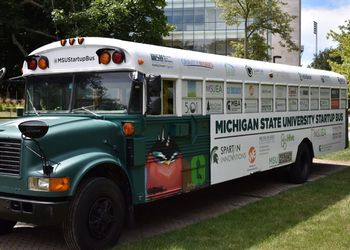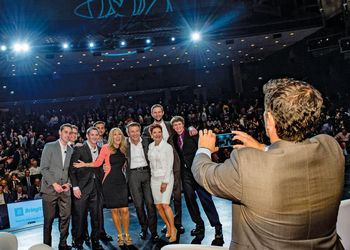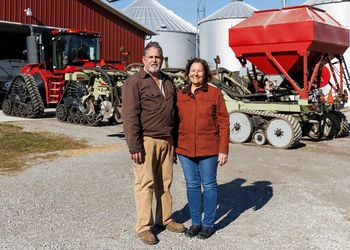Launch the Plan

Launch the Plan
The best ideas become reality.
October 1, 2017After all of the market research, the business plans and the long days and late nights spent creating that Brand New Thing, it's finally ready for the world. To make sure the fledgling entrepreneurs are prepared to make their new offering as successful as possible from day one, MSU gives innovators the tools they need, from technical support to moral support.
Here are a few stories about how to lift off.
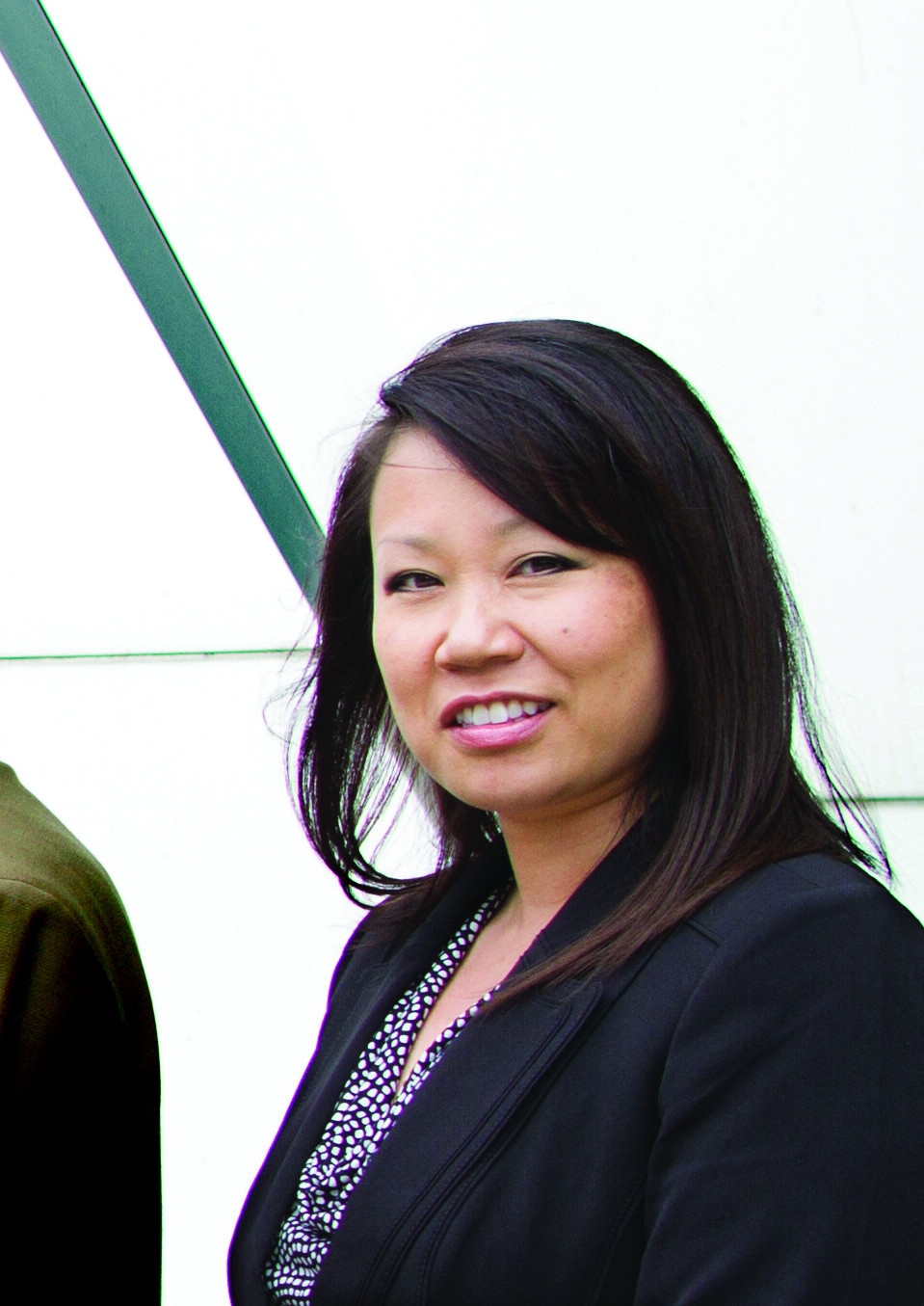 Supporting Each Step Toward Success
Supporting Each Step Toward Success
Lori Fischer is the events and student program manager at Spartan Innovations, which provides educational and financial support to turn MSU research technologies into successful businesses. Fischer also manages the MSU Hatch.
What is the MSU Hatch?
The MSU Hatch is a startup incubator focusing primarily on undergraduate students. It's a co-working environment--a physical space complete with computer stations, tables, lockers, coffee, and conference rooms. We offer resources for students who are developing their business ideas or new products. These resources include 3D printing and scanning, one-on-one mentorship, and access to over 20 interns who can assist with marketing, legal, and web/application development, etc.
Do students need a spacce like this? They can start businesses in their dorm rooms, right?
A space like the MSU Hatch immediately links students with MSU's entrepreneurial ecosystem. Our location within the MSU Innovation Center means that our students are plugged into the culture of innovation; they get to encounter entrepreneurs of all ages and stripes, and they get to see how businesses move through the development stages. For all entrepreneurs, connection is vital and translates to more robust success. People here have similar hurdles--they can give and receive advice, commiserate, and connect.
What should Hatch students expect?
Hatch encourages students to follow specific entrepreneurial protocols. We offer a three-stage process to help students get their projects off the ground. We have them start with a discovery process--researching the market, the customers, and the competition. Then they have a validation process, where they create marketing and sales strategies, create financial projections, and establish price points. The third stage is launch, when their companies head to the marketplace; from there, student teams are encouraged to join other accelerators and incubators.
Can you talk about some people who have benefited from the MSU Hatch?
Of course! We have several companies taking advantage of the resources we offer. For instance, Filteristic is a student company offering Snapchat filters and analytics. We have another (Prndl) that is developing a parking app that has been accepted into multiple pitch competitions and joined this summer's Conquer Accelerator cohort. We also have students who have gotten jobs at Apple, Google, and other great companies because of their connections to the Hatch. We believe in the importance of embracing an entrepreneurial attitude. It's a journey--a process of learning to become better.
Student Startups Bringitt to the Winner's Circle
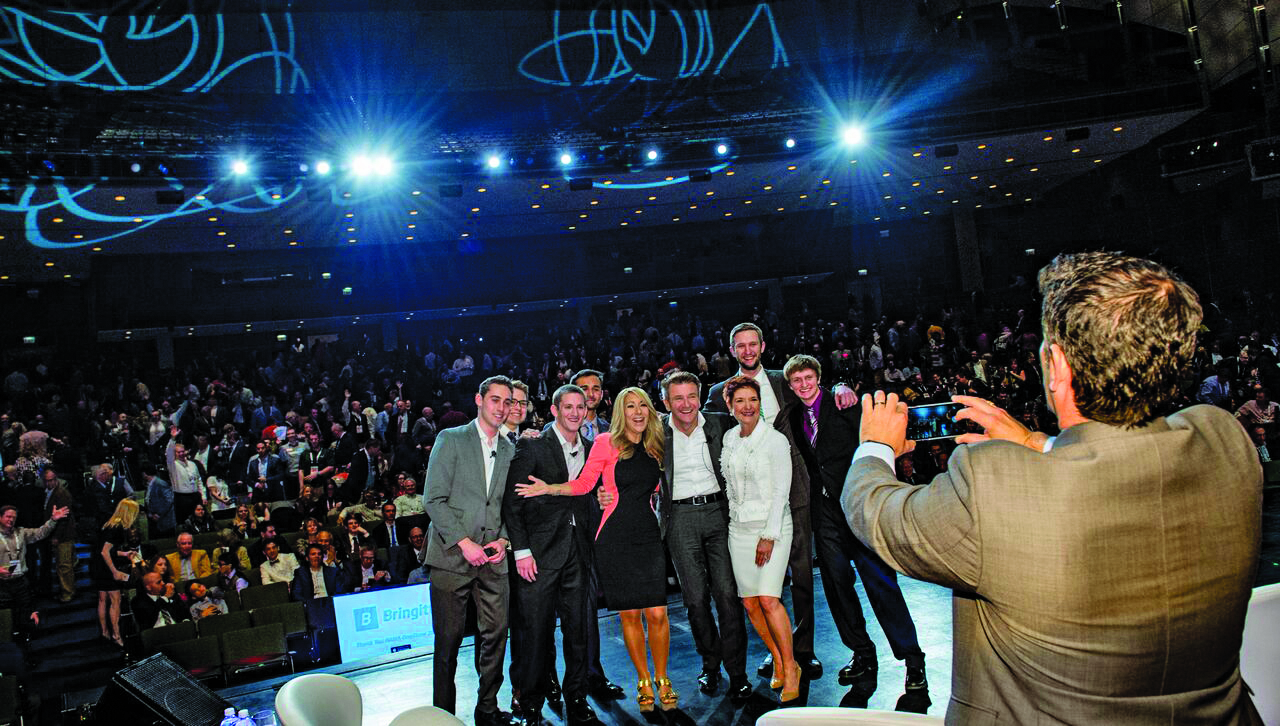
The Innovation Center helps students launch their startups from the drawing board to the big stage. Above, students pose with the judges from ABC's Shark Tank after winning the $10,000 first prize in Competition in April 2016. The student entrepreneurs created an app called Bringitt, which connects students traveling home with students in the same area who need something delivered to them back at school. Students post items they need delivered, with a destination and a time, and other users are given the opportunity to pick up the items and deliver them. Real-time item tracking and the ability to message drivers provides convenience and peace of mind when requesting items for delivery, all with the safety of cashless in-app transactions. Bringitt allows students to get paid for helping out one another.
Chemists Battle Football Injuries, Head On
Here’s a fact that should make your head snap: Pee-Wee football players, ages 5-14, are more susceptible to game-induced brain injuries than their NFL counterparts. Why? Their coaches lack the expertise to gauge if they’ve sustained brain injuries. Short of a neurology exam, “you can’t detect concussions—and no two are the same,” said Gary Blanchard, an MSU chemist. “Coaches have 30 seconds to make a decision whether to return an athlete to the game. If a second impact occurs…kids suffer additional brain injury.”
In 2014, Blanchard and fellow chemist Marcos Dantus, both parents, started tackling the dilemma. They investigated the relationships between force and the range of potential head injuries athletes might incur.
The end result? They created affordable strips worn in headbands or caps. A set of four encircle an athlete’s noggin. Here’s how they work: The sensor strips produce are designed to produce an image upon impact. Inside the sensing strips are dye-containing micro-vessels that create patterns proportional to the force and location of the impact. A dangerous blow to the head causes micro-vessels of dye to burst and produces a black star-and-circle pattern.
“They don’t diagnose concussions, but they give an immediate indication of an impact and its location—an alert that should prompt a concussion protocol from a coach, parent or doctor,” Dantus said.
Spartan coaches, athletes, trainers, business gurus, and alumni all volunteered their help in the design, testing, and startup phases. Today the headbands and caps cost less than $40 and may be purchased at ROSHsensors.com and at Amazon.com. ROSH, short for Rapid On-Site Sensing Headgear, is the name of the chemists’ startup.
“We didn’t build a factory or try to hire a bunch of employees. This allowed us to scale up quickly and get our product to market,” Dantus said. Strips are manufactured on demand by a U.S. vendor.
Brian McConnell, former NFL player and an MSU alumnus, is a partner at HPN Neurologic, a concussion diagnostics and treatment company. He’s a big proponent of the product. “If you can tell someone to sit out after the first (blow) and allow them to recover, then you’ll go a long way toward preserving their life, their health,” he said.
Blanchard added: “We wanted to be able to put some tangible evidence into coaches’ and parents’ hands on the spot, when they need it most. MSU is a unique place that’s allowed our idea to germinate. I’m not sure this could have happened anywhere else.”
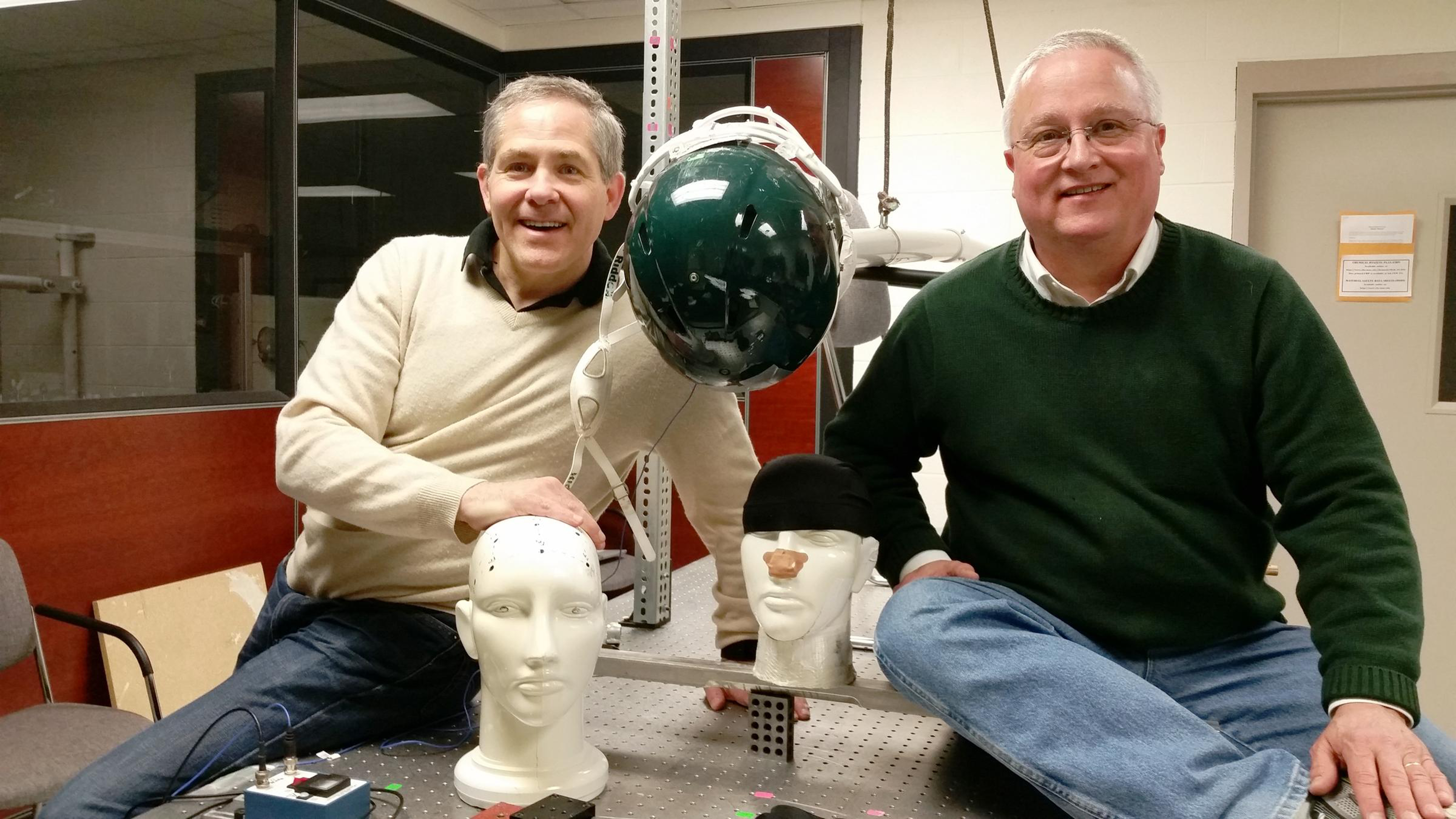
Want to Ride the Roller Coaster?
MSU Innovation Center will buckle you in
So you’ve got an idea for what you think could be the next fidget spinner or perhaps a new life-saving medical device. Now what? Call the MSU Innovation Center.
Think of it as the “center of gravity” on the roller coaster ride of entrepreneurship, said MSU’s Charles “Charley” Hasemann, the assistant vice president of Innovation and Economic Development overseeing the center.
Under its roof are three distinct units with a total of 45 specialists who annually propel roughly 150 discoveries into a pipeline of patents, products, and business pursuits. Faculty, students, and the public may call the center for free consultations.
“Our mission is to move imaginative ideas into marketable products—and potential new jobs— benefitting our state in a highly competitive global economy,” Hasemann said.
Success is skyrocketing. Last year saw a record setting 66 new licenses and options, 179 new invention disclosures, 221 research agreements, 155 student start-up teams, and $1.4 million in royalties paid to faculty and academic departments.
The center has three main resources:
Business CONNECT: A front door for corporations seeking to connect with a spectrum of university resources; coordinates and handles new and existing contracts with business partners and participates in broad economic development activities.
MSU Technologies: Leads university wide technology transfer and commercialization, including patent applications, licensing, protection and use of intellectual property, and start-up support.
Spartan Innovations: Offers educational and financial support to convert MSU know-how into successful businesses while spurring entrepreneurship throughout the state.
“We’re a single portal for turning raw ideas into products. We’re bringing Silicon Valley excitement to MSU. We have lots of great alumni who are hungry for this,” Hasemann said.



